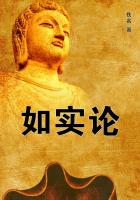Still no one has distinctly said that this decision was formal; perhaps the unanimity of opposition made the formal Cabinet unnecessary; but it is certain that, within an hour or two before or after this decision, "his lordship said [to the United States Minister] that the policy of the Government was to adhere to a strict neutrality and to leave this struggle to settle itself." When Mr. Adams, not satisfied even with this positive assurance, pressed for a categorical answer: "I asked him if I was to understand that policy as not now to be changed; he said: Yes!"
John Morley's comment on this matter, in the "Life of Gladstone," forty years afterwards, would have interested the Minister, as well as his private secretary: "If this relation be accurate," said Morley of a relation officially published at the time, and never questioned, "then the Foreign Secretary did not construe strict neutrality as excluding what diplomatists call good offices." For a vital lesson in politics, Earl Russell's construction of neutrality mattered little to the student, who asked only Russell's intent, and cared only to know whether his construction had any other object than to deceive the Minister.
In the grave one can afford to be lavish of charity, and possibly Earl Russell may have been honestly glad to reassure his personal friend Mr. Adams; but to one who is still in the world even if not of it, doubts are as plenty as days. Earl Russell totally deceived the private secretary, whatever he may have done to the Minister. The policy of abstention was not settled on October 23. Only the next day, October 24, Gladstone circulated a rejoinder to G. C. Lewis, insisting on the duty of England, France, and Russia to intervene by representing, "with moral authority and force, the opinion of the civilized world upon the conditions of the case." Nothing had been decided. By some means, scarcely accidental, the French Emperor was led to think that his influence might turn the scale, and only ten days after Russell's categorical "Yes!" Napoleon officially invited him to say "No!" He was more than ready to do so. Another Cabinet meeting was called for November 11, and this time Gladstone himself reports the debate:
-- Nov. 11. We have had our Cabinet to-day and meet again tomorrow.
I am afraid we shall do little or nothing in the business of America. But I will send you definite intelligence. Both Lords Palmerston and Russell are right . Nov. 12. The United States affair has ended and not well. Lord Russell rather turned tail. He gave way without resolutely fighting out his battle. However, though we decline for the moment, the answer is put upon grounds and in terms which leave the matter very open for the future. Nov. 13. I think the French will make our answer about America public; at least it is very possible. But I hope they may not take it as a positive refusal, or at any rate that they may themselves act in the matter. It will be clear that we concur with them, that the war should cease. Palmerston gave to Russell's proposal a feeble and half-hearted support. Forty years afterwards, when every one except himself, who looked on at this scene, was dead, the private secretary of 1862 read these lines with stupor, and hurried to discuss them with John Hay, who was more astounded than himself. All the world had been at cross-purposes, had misunderstood themselves and the situation, had followed wrong paths, drawn wrong conclusions, had known none of the facts. One would have done better to draw no conclusions at all. One's diplomatic education was a long mistake.
These were the terms of this singular problem as they presented themselves to the student of diplomacy in 1862: Palmerston, on September 14, under the impression that the President was about to be driven from Washington and the Army of the Potomac dispersed, suggested to Russell that in such a case, intervention might be feasible. Russell instantly answered that, in any case, he wanted to intervene and should call a Cabinet for the purpose.
Palmerston hesitated; Russell insisted; Granville protested. Meanwhile the rebel army was defeated at Antietam, September 17, and driven out of Maryland. Then Gladstone, October 7, tried to force Palmerston's hand by treating the intervention as a fait accompli . Russell assented, but Palmerston put up Sir George Cornewall Lewis to contradict Gladstone and treated him sharply in the press, at the very moment when Russell was calling a Cabinet to make Gladstone's words good. On October 23, Russell assured Adams that no change in policy was now proposed. On the same day he had proposed it, and was voted down. Instantly Napoleon III appeared as the ally of Russell and Gladstone with a proposition which had no sense except as a bribe to Palmerston to replace America, from pole to pole, in her old dependence on Europe, and to replace England in her old sovereignty of the seas, if Palmerston would support France in Mexico. The young student of diplomacy, knowing Palmerston, must have taken for granted that Palmerston inspired this motion and would support it; knowing Russell and his Whig antecedents, he would conceive that Russell must oppose it; knowing Gladstone and his lofty principles, he would not doubt that Gladstone violently denounced the scheme. If education was worth a straw, this was the only arrangement of persons that a trained student would imagine possible, and it was the arrangement actually assumed by nine men out of ten, as history. In truth, each valuation was false. Palmerston never showed favor to the scheme and gave it only "a feeble and half-hearted support." Russell gave way without resolutely fighting out " his battle." The only resolute, vehement, conscientious champion of Russell, Napoleon, and Jefferson Davis was Gladstone.
Other people could afford to laugh at a young man's blunders, but to him the best part of life was thrown away if he learned such a lesson wrong.















